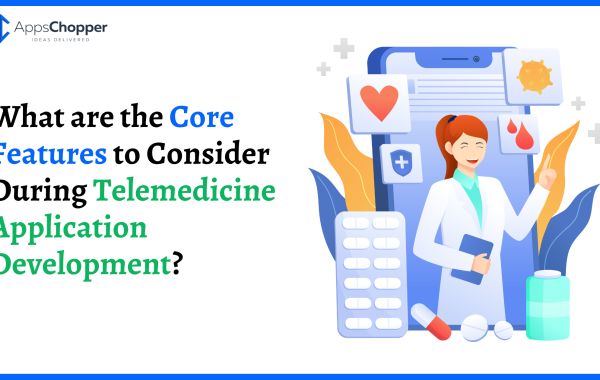The healthcare industry is changing with the demands of the times and introducing innovations that offer seamless remote functioning. One prime example of such an inventive approach is the adoption of telemedicine app like Teladoc. Telemedicine apps are altering the basic functioning of the healthcare industry. Patients and doctors are at ease with the utilization of healthcare-centric apps.
Post-pandemic, the traditional functioning took a curve and opened the gateways for contactless doctor-patient interactions to offer relief. The hospital visits, standing in long lines, the fear of contracting a new infection in the waiting areas, and the hassle are eliminated for the patients. Similar is with the doctors, no more in-person interactions with the infected patients, lower the chances of contracting viruses, and many more.
The convenience in the healthcare industry brought about much-needed change after the global pandemic. The better part is that the apps are not limited to the core feature of scheduling appointments but expand the features and functionalities to offer patients comfort. One can place an order to get medicines delivered or even track their symptoms and signs to ensure recovery. Telemedicine apps are changing daily functioning and bringing revolutionary change for each and every individual associated with the industry.
Medical institutions and hospitals are stretching their boundaries and seeking telemedicine application development. One central question they face is what features their apps must include to be intuitive.
Must-Have Features for Telemedicine Application Development
When deciding on necessary features, one must look into a wide range of options to enhance the telemedicine app. A thorough understanding can change the initial app expectations. Let us discover the features that can ensure streamlined functioning for healthcare professionals and patients.
For Healthcare Professionals:
Doctor’s profile: This feature lets doctors make and handle their proficient profiles, including their capabilities, specialty, and availability.
Virtual consultations: Virtual consultation features allows doctors to offer remote healthcare services, conduct live video or audio consultations, and manage patient concerns.
Appointment scheduling: The appointment scheduling feature in your telemedicine ap permits doctors to operate their schedules and offers patients online bookings.
Prescription management: The telehealth app should allow doctors to generate electronic prescriptions and send them straight to pharmacy platforms.
Clinical notes and documentation: Medical specialists can document patient interactions, diagnoses, medicines, and follow-up plans for proper documentation with this feature.
Telemonitoring integration: The integration features incorporate an app with remote monitoring devices to assist physicians in obtaining and diagnosing patient data.
Billing and payment processing: Your teleconsultation app for doctors must be able to render invoices and track payments.
For Patients:
Patient profile: The patient profile feature allows patients to offer relevant personal information, medical history, and precedences.
Search for doctors: A search bar allows patients to find and choose healthcare providers based on their preferred forte, location, availability, and reviews.
Appointment booking: The telemedicine app for patients offers scheduling consultation features that allow patients to align with doctors based on availability.
Virtual consultations: Patients can ensure remote access to healthcare services through live video or audio consultations.
Secure messaging: This feature lets patients ask doctors non-urgent queries and discuss safety concerns.
Health data tracking: Patients can manually follow their critical signs, symptoms, or movements or integrate with wearable devices with health data tracking features.
Medication reminders: Augment telemedicine apps for patients with notifications and alerts to provide precise medication intake.
Conclusion
With healthcare app development services, businesses can get their hands on professionals to integrate essential features into their apps. To ensure that your app has all the above features necessary for a healthcare app, choose an experienced professional and let them know your needs and requirements.








